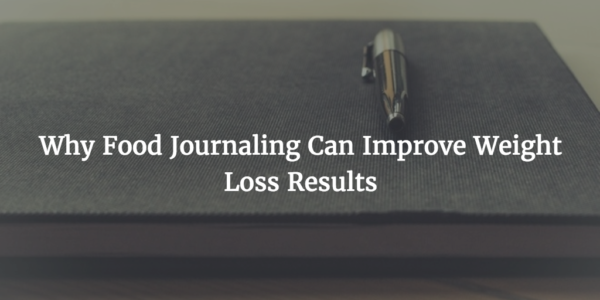Weight loss is one of the most sought after goals in America. Unfortunately, many struggle to find success. And if they do lose weight, it’s not as much as they were hoping for.
Well, what if I told you though just by doing one thing, you could double your results. You could lose twice as much weight, decrease your health risks, and feel better. Would you believe me?
I hope so, because the research shows this is actually true.
So, what’s this one thing? Food journaling.
One of the first nutrition habits I have a client work on is food journaling. There are two big reasons for this.
1. It’s extremely simple to do. Writing down what you eat takes minutes out of your day which means it’s very easy to complete.
2. It keeps the client accountable. If I meet with someone 2 x per week, that leaves another 166 hours during the week that they’re on there own. By keeping a journal, they have to own what they eat. This allows them to hold themselves accountable in my absence.
In 2008, a study was conducted with nearly 1,700 participants. For 6 months, the participants were encouraged to eat healthier meals and record what they ate and drank. They also participated in weekly group meetings to go over their journals with the other participants.
The results were quite telling. The researchers found that the greatest predictor of weight loss was the number of days per week the subjects journaled their meals. Those who recorded their food 6 days per week lost 13 pounds, on average. And those who kept a food journal lost twice the amount of weight as those who didn’t.
This begs the question, why is food journaling so helpful?
The researchers of the study believe that not only did it help keep each individual accountable but it also made them aware of how much they were eating.
The amount of calories you consume will always play the largest role in weight loss. By keeping a journal, the participants were able to see what meals they were overeating, which then allowed them to scale back. This created more of a caloric deficit which improved their results.
When someone wants to lose weight, more often than not they throw the whole kitchen sink at their problem. They cut out soda and alcohol, cut out desserts, cut out snacks, eat more veggies, etc. They overhaul everything at once.
This isn’t an effective strategy long-term because there are too many variables at play. People perform best when they focus on one thing.
If you’re just beginning your weight loss journey, try food journaling only. Forget about what you’ve read in the latest magazine. Forgot about trying to eat “healthier”.
Why?
As you journal your food, you’ll begin to change the types of foods you eat automatically. You’ll be able to see what areas you need to change. You may find that you drink 2 sodas per day or that you always go back for seconds during dinner.
Once you find these, you can then work on them one at a time. You can try to drink only 1 soda per day or stop after you finish your first plate. These changes will occur naturally instead of you feeling forced to do them as with most diets.
The most important thing is not overloading your brain. The easier you can make things, the more compliant you’ll be. Writing down what you eat isn’t hard, takes little time, and can double your progress.
Here are some steps to get you started:
- Decide how you will record your food. You can use an app like Myfitnesspal or an old fashioned pen and paper.
- Be specific with portion sizes. Research shows we are bad at recalling how much we’ve eaten. This can make it hard to see success with journaling. Write down 1 palm size serving of chicken and 1 fist sized serving of squash instead of chicken and veggies. This will ensure accuracy and increase your odds of successful weight loss.
- Decide what time of day you will journal. Some like to write down everything before bed, whereas others like to record after every meal. Find what works best for you and stick to it. This will help you turn journaling into a daily habit.
If your goal is weight loss, give it a try. You’ll be amazed at how much food journaling can improve weight loss results.
References:
1. Kaiser Permanente. “Keeping A Food Diary Doubles Diet Weight Loss, Study Suggests.” ScienceDaily. ScienceDaily, 8 July 2008.






